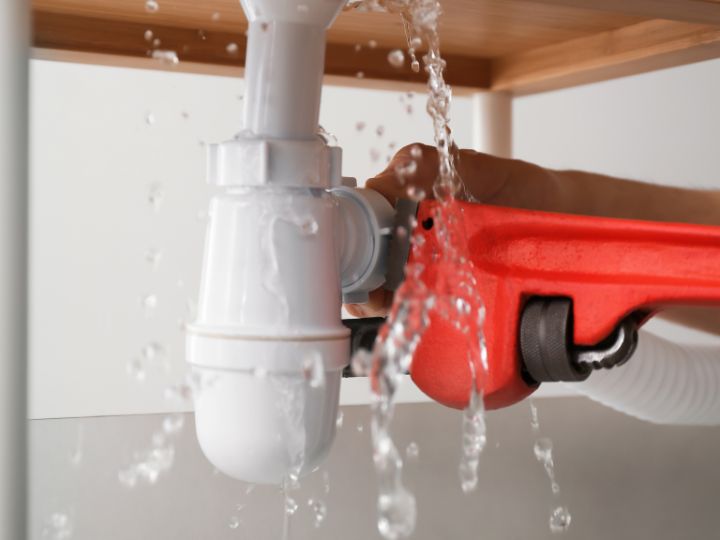
How to Verify Your Arizona Contractor's License and Insurance: A Complete Guide

Hiring a contractor for your home improvement project is a significant decision that requires careful vetting. In Arizona, where the construction industry thrives year-round, protecting yourself from unlicensed or uninsured contractors is crucial. This comprehensive guide will walk you through the essential steps to verify your contractor's credentials and ensure your project is in capable, legitimate hands.
Why Verification Matters
Before diving into the how-to, it's important to understand why verification is critical. Arizona law requires most contractors to be licensed and insured, and for good reason. Working with properly credentialed contractors protects you from:
- Financial liability if workers are injured on your property
- Substandard workmanship that doesn't meet building codes
- Abandoned projects with no legal recourse
- Liens on your property from unpaid subcontractors or suppliers
- Costly repairs from improperly completed work
Additionally, many homeowners insurance policies won't cover damages caused by unlicensed contractors, leaving you completely exposed.
Understanding Arizona Contractor Licensing
Arizona's Registrar of Contractors (ROC) oversees contractor licensing throughout the state. The ROC was established to protect the public by ensuring contractors meet minimum standards of competency and financial responsibility.
Types of Licenses
Arizona issues several types of contractor licenses:
- Dual Licensed: Contractors can work on both commercial and residential projects
- Commercial Only: Limited to commercial construction projects
- Residential Only: Limited to residential construction projects
Licenses are further categorized by specialty, such as general contracting, plumbing, electrical, HVAC, roofing, and more. Each classification has specific limitations on the type and scope of work permitted.
Step-by-Step: Verifying a Contractor's License
Step 1: Request the License Number
Any legitimate contractor should readily provide their license number. In Arizona, this is typically formatted as "ROC" followed by numbers (for example, ROC123456). If a contractor hesitates or makes excuses about providing this information, consider it a red flag.
Step 2: Use the ROC Online Search Tool
The Arizona Registrar of Contractors maintains a free, public database where you can verify any contractor's license status. Here's how to use it:
- Visit the Arizona ROC website at roc.az.gov
- Click on "Find a Licensed Contractor" or navigate to the license search function
- Enter the contractor's license number, business name, or the owner's name
- Review the results carefully
Step 3: Review the License Details
Once you've located the contractor's license, examine the following information:
License Status: Ensure the license is "Active." Avoid contractors with suspended, revoked, or expired licenses.
Expiration Date: Verify the license is current and won't expire during your project timeline.
License Classification: Confirm the contractor's license classification matches the work you need done. A roofing contractor's license doesn't authorize them to do electrical work, for example.
Bonding Information: Check that the contractor maintains the required bond, which provides financial protection if they fail to complete work or pay suppliers.
Complaint History: The ROC database shows any complaints filed against the contractor and their resolution status. While a single resolved complaint might not be disqualifying, patterns of problems should raise concerns.
Step 4: Verify Insurance Coverage
Arizona requires contractors to carry specific insurance coverage, but the ROC doesn't verify insurance details—that's your responsibility. Request certificates of insurance for:
General Liability Insurance: This protects you if the contractor damages your property during the project. A minimum of $1 million in coverage is standard for residential work.
Workers' Compensation Insurance: Required if the contractor has employees, this coverage protects you from liability if a worker is injured on your property.
Step 5: Contact the Insurance Provider
Don't just accept a certificate of insurance at face value. Take these additional verification steps:
- Call the insurance company listed on the certificate using a phone number you look up independently (not one provided by the contractor)
- Verify the policy is active and in good standing
- Confirm the coverage amounts match what's stated on the certificate
- Ask about the policy's effective dates to ensure coverage throughout your project
- Request that you be named as an "additional insured" on the liability policy for your project
Many insurance companies can provide verification within minutes, and legitimate contractors expect clients to take this step.
Additional Verification Steps
Check Business Registration
Verify the contractor is registered with the Arizona Corporation Commission. This confirms they're a legitimate business entity operating legally in the state. You can search the ACC database at ecorp.azcc.gov.
Review Online Presence and References
While not a substitute for official verification, researching a contractor's reputation provides valuable context:
- Check reviews on Google, Yelp, and the Better Business Bureau
- Ask for references from recent projects similar to yours
- Actually call those references and ask about their experience
- Look for a professional website and active social media presence
- Search for news articles or legal filings involving the contractor
Verify Physical Address
Legitimate contractors operate from established business locations. Be wary of contractors who only provide a P.O. box or use residential addresses. Drive by their business location if possible, or verify it through online maps.
Request Proof of Bond
Arizona contractors must maintain a surety bond, which serves as a financial guarantee. If a contractor fails to pay suppliers, complete work, or comply with regulations, you may be able to file a claim against their bond. The bond information is listed in the ROC database, but you can also request proof directly from the contractor.
Red Flags to Watch For
Be cautious if a contractor:
- Refuses to provide a license number or insurance certificates
- Pressures you to start work immediately without proper documentation
- Requests large upfront payments (Arizona law limits deposits to one-third of the contract price or $1,000, whichever is less)
- Suggests "saving money" by avoiding permits
- Operates under multiple business names
- Only accepts cash payments
- Doesn't provide a written contract
- Has a license in another person's name who won't be managing your project
Understanding Arizona's Contracting Laws
Arizona has specific laws designed to protect consumers:
Residential Contracts: For contracts exceeding $1,000, Arizona law requires a written agreement that includes the contractor's license number, business name, address, and a detailed description of the work to be performed.
Right of Cancellation: For contracts signed at your home, you have a three-day right to cancel without penalty.
Down Payment Limits: Contractors can't require down payments exceeding one-third of the total contract price or $1,000, whichever is less.
Lien Rights: Arizona has specific laws about construction liens. A properly licensed contractor provides protection against illegal liens.
What If You Discover Problems?
If you find that a contractor isn't properly licensed or insured, don't proceed with hiring them. If you've already begun working with a contractor and discover issues, you have options:
- Stop work immediately and withhold further payments
- File a complaint with the Arizona ROC at roc.az.gov
- Contact an attorney to understand your legal options
- Document everything including contracts, payments, and communications
The ROC investigates complaints and can take disciplinary action against contractors, including fines, license suspension, or revocation.
Questions to Ask Your Contractor
Beyond verification, ask these questions before signing a contract:
- How long have you been in business?
- Who will be the project manager for my job?
- Do you use subcontractors? If so, are they also licensed and insured?
- What permits are required, and who will obtain them?
- What's your timeline for completion?
- How do you handle changes to the original scope of work?
- What warranties do you offer on your work?
- How do you handle disputes or problems that arise?
Making an Informed Decision
Once you've verified a contractor's license and insurance, you're well-positioned to make an informed hiring decision. Remember that the lowest bid isn't always the best choice. Consider the contractor's experience, reputation, communication style, and your overall comfort level with them.
A trustworthy contractor will appreciate your diligence and welcome your verification efforts. They understand that informed homeowners make better clients and that transparency builds trust.
Moving Forward with Confidence
Protecting yourself by thoroughly verifying your contractor's credentials is one of the most important steps in any home improvement project. While it requires some time and effort upfront, this due diligence can save you from significant financial and legal problems down the road.
If you're looking for a remodeling contractor in the Phoenix or Tempe area who welcomes verification and operates with full transparency, consider reaching out to The Contractor Guyz. Like any contractor you're considering, verify their ROC license, check their insurance coverage, and review their references. A reputable contractor will make this process easy because they have nothing to hide.
Remember, in Arizona's competitive construction market, legitimate contractors stand out by maintaining proper licensing, carrying adequate insurance, and operating with integrity. Your home is likely your largest investment—protect it by working only with contractors who meet these standards.
By following this guide, you're taking control of your home improvement project and significantly reducing your risk. The few hours spent on verification could save you thousands of dollars and countless headaches. Don't skip these critical steps, no matter how eager you are to start your project or how trustworthy a contractor seems. In construction, verification isn't about distrust—it's about smart homeownership.
Latest Blogs
Transform your dream home into reality with our premier renovation services!
Book a call with us today and let's create the perfect space tailored just for you.

.svg)
.svg)



